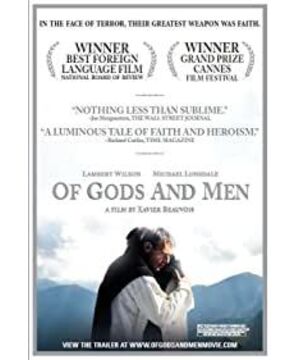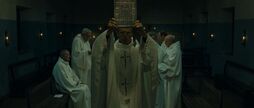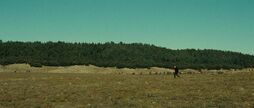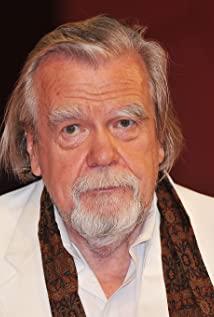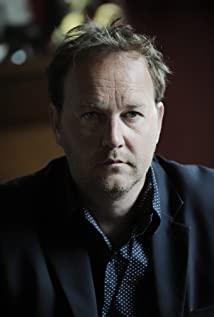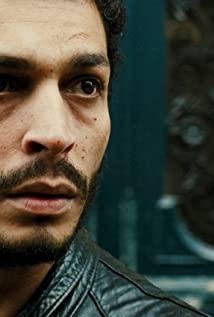"Man and God", which won the Grand Prize of the Jury at the Cannes Film Festival last year, describes a real event that occurred in Algeria in 1996, when it was in the midst of a more than ten-year civil war. Seven French monks in the Debilene Monastery in Algeria were taken away by a group of Islamic extremists late at night, and their bodies were found two months later. By whom they died is still a mystery. It is generally believed that they were killed by Algerian Islamic armed forces, and some believe that they were killed by Algerian government forces. But the film does not pay attention to this point. At the end of the film, it just shows that they disappeared in the wind and snow, leaving the mystery still in the hearts of the audience. This is a sensitive subject, especially at the moment. It involves the relationship between Christianity and Islam. It is meaningless to revert the historical accounts. The director is very clever. He not only uses the sensitivity of the subject matter, but also avoids the controversy that may be brought about. It puts the focus of attention on the inner choice of the monks when the disaster comes. The choice of those old monks gave the film a layer of divine and human brilliance.
The story of the film is not strong, the plot has been watered down, only the simplest facts are left to advance the progress of the story. The pace of the film is also very slow. The film is more about the activities of these monks, their religious ceremonies, and their discussions about holding on or withdrawing. The director focused the lens more on the hearts of the characters in the play. The pictures were rich in texture, and the solemn and pious prayers, from the fear of the upcoming catastrophe to the final peace of mind, highlighted the steadfastness of these monks. Faith, the transition from a weak human nature to a strong divine nature. Although the plot disappears behind the expression of divinity, the whole movie is not dull. The suspense remains until the end. The nervous atmosphere oppresses the nerves of the audience and touches people's hearts. The calm narrative is full of tension.
Faced with the tense situation and the approaching threat, whether to withdraw from the monastery or not has become a difficult choice for the eight monks in the film. Except for the dean of the monastery, the other seven people are all very old. They come from France and go to a foreign monastery to practice, just for peace of mind and closer to God. Next to the Debilene monastery where they are located, is a village that believes in Islam. These monks have forged a deep friendship with the Muslim villagers. They treat the villagers and give them guidance. The villagers also regard them as their own strong support, and the villagers do not want them to leave. The war is approaching, the hostility of extremist organizations is getting stronger and stronger, and the pressure exerted by the Afghan government on them is also getting stronger. As a realistic choice, "the gentleman does not stand under the dangerous wall" and hard-tops with irresistible danger. It is tantamount to hitting a stone with a pebble. The weakness of human nature also makes them linger. "I came here to cultivate the Tao, not to dedicate myself." This is true human nature and a rational choice for ordinary people. The first vote of these monks showed the hesitation in their human nature.
However, after all, they are monks, monks who have practiced for many years, and their human weakness is only temporary. Religious rituals have strengthened their beliefs, and the piles of things they have witnessed have also aroused their religious responsibilities. "Though thousands of people are going to go", what is the fear of physical sacrifice? Their persistence means the persistence of God, and the Debilene monastery is their strong spiritual fortress. These monks knew the meaning of their choice, but in this vote, all eight people expressed their intention to stay. To stay means martyrdom. For ordinary people, although it is tragic, it is meaningless. But such martyrdom is necessary and necessary for religion. Their martyr churches firmly believe in believers, and their non-giving up of faith means the manifestation of the divine nature of God. After they made their choice, they seemed to be calmer in their hearts, holding on calmly, and calmly waiting for the disaster to come. This is a kind of power of faith, and it is also a kind of divine sparkle. Dedication to God is such an honor for a devout monk. For them, death is just a relief, a leap.
Although the film is adapted from historical events, the historical facts are only the background. It is more about the questioning of human souls and the demonstration of the power of faith. Therefore, "Man and God" is not so much a biographical film as it is closer to religion. piece. The two sentences of the Chinese Confucian sages we mentioned at the beginning, from "a gentleman does not stand under a dangerous wall", which is a rational consideration of human nature; and "although tens of thousands of people I will go", there is a point. Kind of spiritual power. However, China is, after all, a country lacking religious sentiments. From the rationality of Confucius to the courage of Mencius, they have not yet risen to the level of religion. The monks in the play have the spirit of knowing that they cannot be done. This is not measured by human wisdom, but a power of faith. Because they firmly believed in the existence of God, they were fought for the glory of God, so their death also had a divine brilliance.
View more about Of Gods and Men reviews


